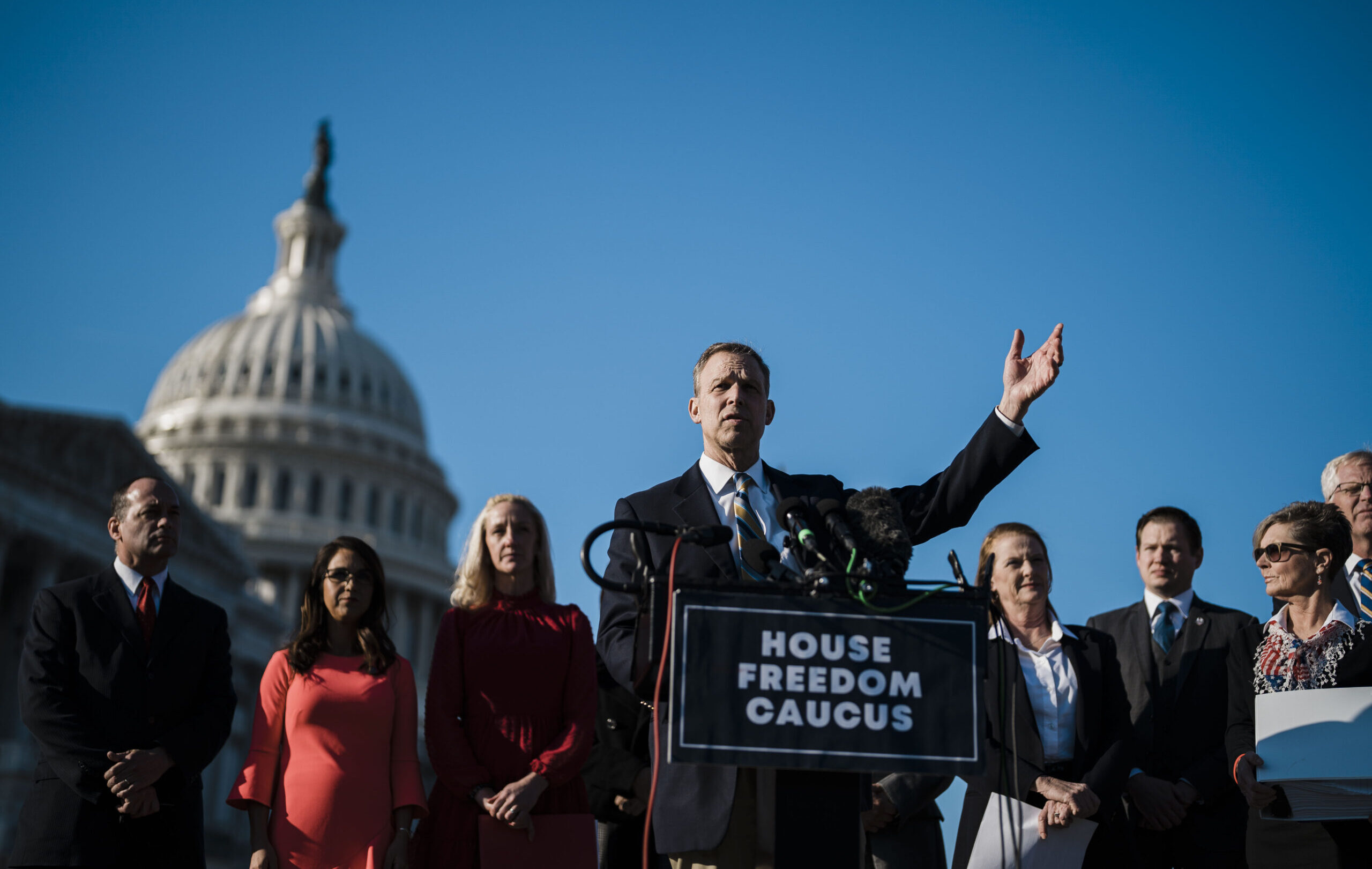
"President Trump claimed that the largest spending cut, $1.7 trillion, would go unnoticed, as it targets individuals gaming the system, like illegal immigrants and able-bodied adults on Medicaid."
"The spending cuts are largely ineffective for long-term debt reduction but aim to prevent detrimental tax increases that could pull $4 trillion from the economy over the next decade."
"The House Freedom Caucus significantly influenced the negotiation of spending cuts, with initial proposals lacking ambition until pressured by hardline conservatives to seek deeper cuts."
"The House leadership, facing division, recognized the importance of the Freedom Caucus in achieving a budget framework with more substantial spending cuts."
House Republican leadership has expressed newfound contentment in budget negotiations, notably influenced by the House Freedom Caucus. Spending cuts outlined, including a notable $1.7 trillion reduction, aim to target specific groups gaming the system. However, these cuts are expected to have limited long-term effects on debt and deficits, as the risk of imposing over $4 trillion in tax increases looms. In earlier budget proposals, only $300 billion in cuts were suggested until hardline conservatives pushed for stronger measures, showing the significance of the Freedom Caucus in shaping fiscal policy.
Read at The American Conservative
Unable to calculate read time
Collection
[
|
...
]